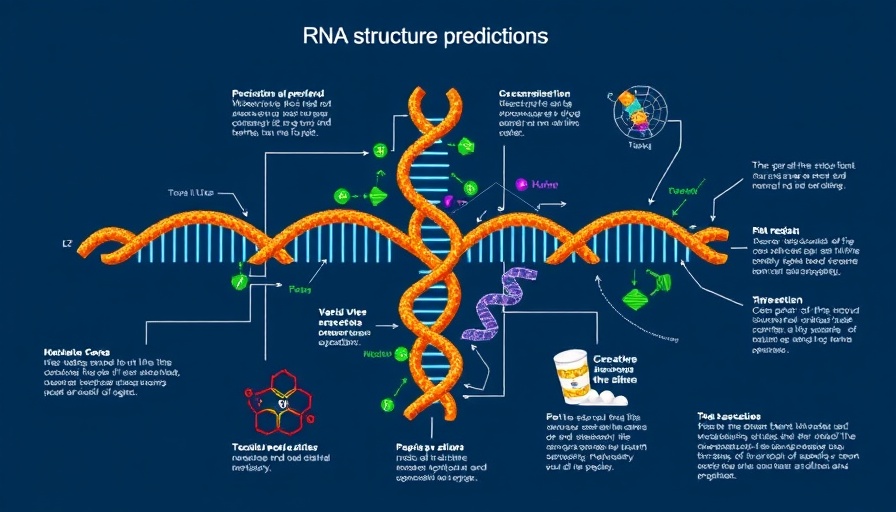
Unlocking RNA Mysteries: The Dawn of NuFold
The advent of NuFold marks a groundbreaking milestone in the quest to decode the complex three-dimensional structures of ribonucleic acid (RNA). RNA holds significant promise in medical science, particularly as a drug target for therapies addressing diseases like cancer, viral infections, and genetic disorders. Historically, the understanding of RNA structures has lagged behind that of proteins due to the intricate and highly flexible nature of RNA molecules. Probable solutions have often been slow and labor-intensive, limiting the pace of relevant medical discoveries.
How NuFold Works: A Deep Learning Approach
Developed by researchers at Purdue University, the NuFold computational tool leverages advanced machine learning techniques to effectively predict RNA structures from their sequences. By implementing a deep learning architecture similar to that used in the groundbreaking AlphaFold for proteins, NuFold positions itself as a game-changer within the realm of RNA research. As Daisuke Kihara, the lead researcher, puts it, "NuFold is the RNA equivalent of AlphaFold," indicating its potential to transform our understanding of RNA in much the same way that AlphaFold redefined protein studies.
Bridging the Gap in Medical Research
In a world increasingly reliant on RNA-based therapies, from mRNA vaccines to gene-editing techniques, the need for detailed RNA structural data is more pressing than ever. Traditional experimental methods of protein and nucleic acid modeling can span years, leaving vast knowledge gaps, particularly for disease-related RNA molecules. However, with NuFold, researchers can tap into an open-source tool that is readily accessible, requiring only basic computational proficiency through a Google Colab notebook interface. This democratization of technology empowers researchers worldwide to conduct their studies efficiently and effectively.
Potential Applications: Revolutionizing Drug Discovery
The implications of NuFold are extensive, particularly in drug discovery. As researchers gain insights into RNA structures, they can identify important drug-binding sites, optimize therapeutic designs, and better understand how different mutations may impact RNA function. "By visualizing RNA structures, NuFold helps scientists design new therapeutics and unlock the previously hidden potential of RNA," states Yuki Kagaya, the main developer of NuFold.
The Future of RNA Research
With a collaborative approach that encompasses experts from various scientific disciplines, the development of NuFold highlights the synergy between biological sciences and computational technology. This project illustrates the growing trend towards computational solutions for problems previously deemed too complex for conventional experimental methodologies. As Kihara emphasizes, the goal of NuFold extends beyond simple structure predictions; it aims to provide a powerful resource that bridges the gap in RNA research.
Conclusion: Why NuFold Matters
This major advancement stands to not only speed up medical discoveries by years, translating complex computational models into easily interpretable structures, but also enhance our overall understanding of the roles RNA plays in life and disease. As the scientific community continues to embrace machine learning and AI, tools like NuFold may reshape the landscape of biology, paving the way for groundbreaking innovations in medicine and biotechnology.
By familiarizing themselves with the capabilities of NuFold, researchers and interested scientists alike can harness the power of computational biology to accelerate their work, explore new avenues in health science, and contribute to a healthier future for all.
 Add Row
Add Row  Add
Add 


Write A Comment